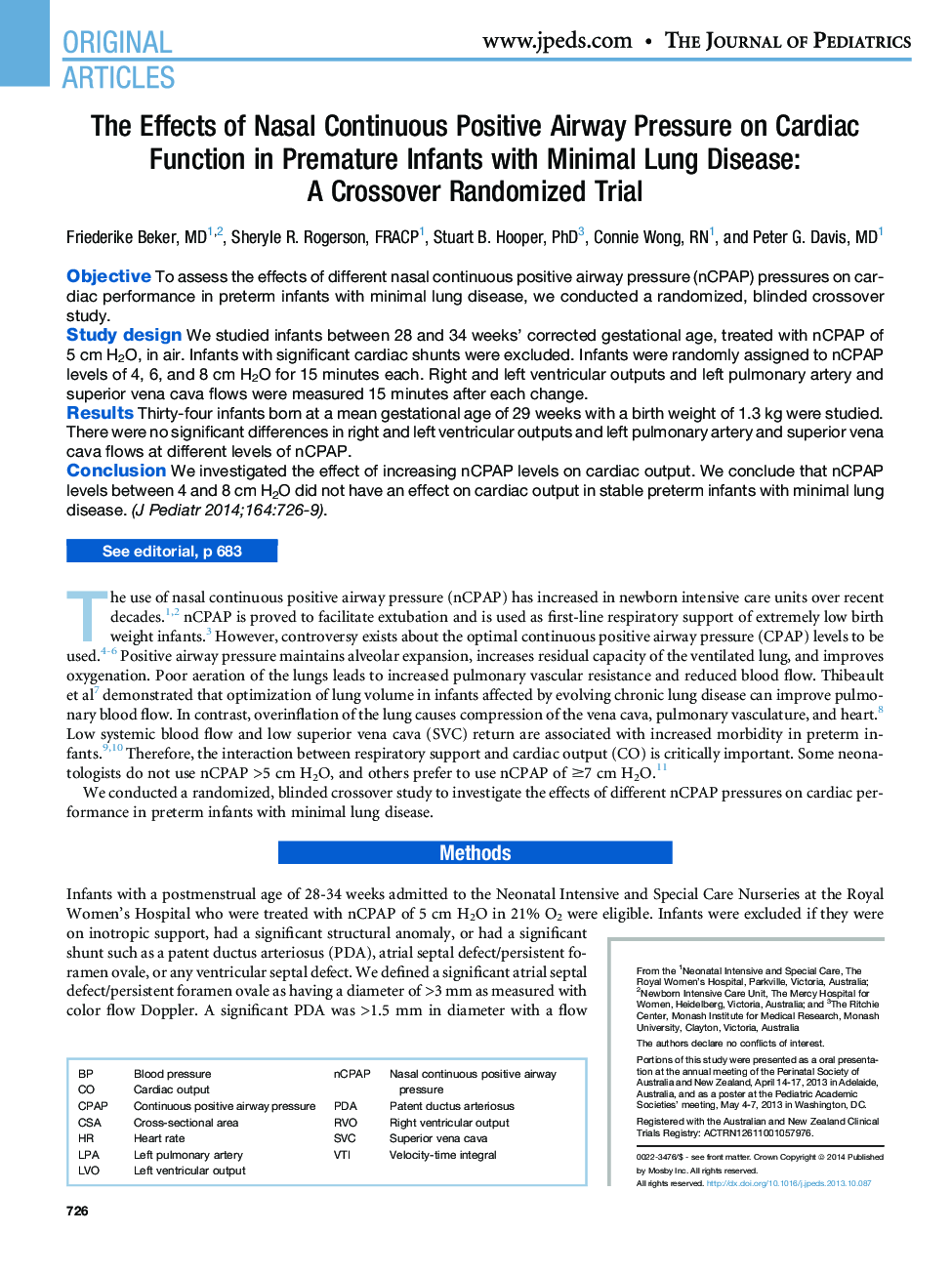| Article ID | Journal | Published Year | Pages | File Type |
|---|---|---|---|---|
| 6222473 | The Journal of Pediatrics | 2014 | 4 Pages |
ObjectiveTo assess the effects of different nasal continuous positive airway pressure (nCPAP) pressures on cardiac performance in preterm infants with minimal lung disease, we conducted a randomized, blinded crossover study.Study designWe studied infants between 28 and 34 weeks' corrected gestational age, treated with nCPAP of 5Â cm H2O, in air. Infants with significant cardiac shunts were excluded. Infants were randomly assigned to nCPAP levels of 4, 6, and 8 cm H2O for 15 minutes each. Right and left ventricular outputs and left pulmonary artery and superior vena cava flows were measured 15 minutes after each change.ResultsThirty-four infants born at a mean gestational age of 29 weeks with a birth weight of 1.3 kg were studied. There were no significant differences in right and left ventricular outputs and left pulmonary artery and superior vena cava flows at different levels of nCPAP.ConclusionWe investigated the effect of increasing nCPAP levels on cardiac output. We conclude that nCPAP levels between 4 and 8 cm H2O did not have an effect on cardiac output in stable preterm infants with minimal lung disease.
